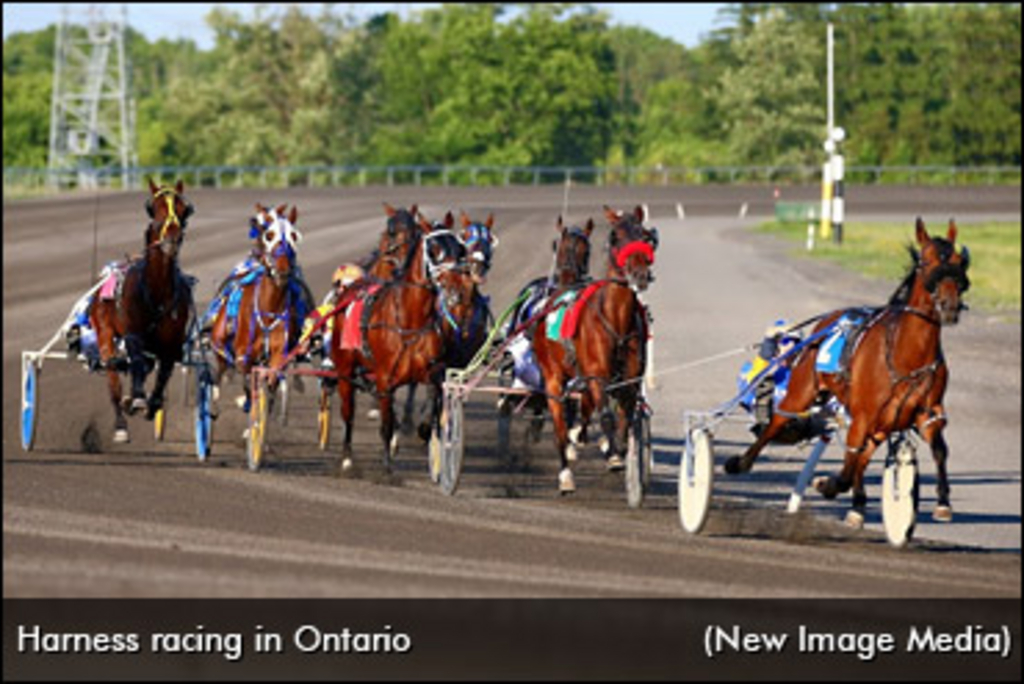
Horsepeople in Ontario have already weathered two government-imposed shutdowns of racing in the past year — and absorbed the economic hits that came with them. Despite the industry's collective resilience and resolve through a tough 2020, the most recent stay-at-home order threatens lasting implications on the health of horse racing across the province.
For the entire second half of 2020, Standardbred and Thoroughbred racetracks across the province hosted racing under strict protocols and before empty grandstands, yet still generated millions of dollars in wagering handle to fund purse accounts to support the livelihoods of thousands employed within the sport — all with nary a COVID-19 outbreak on a backstretch or training centre to speak of. But, despite the industry's track record in safe operation, and despite the minimal difference in terms of personnel required to conduct race meetings and the essential day-to-day care and training of horses, harness racing meetings at Woodbine Mohawk Park, Flamboro Downs, The Raceway at the Western Fair District and Rideau Carleton Raceway have been abruptly halted and the upcoming Thoroughbred meeting at Woodbine Racetrack has likewise been put on hold. And for many horsepeople, the current stoppage has the potential of being the last straw, as they seek greener pastures south of the 49th parallel.
"This cannot be underestimated – our horsemen are leaving in droves on the Standardbred side, and they’re starting to leave on the Thoroughbred side," Woodbine Entertainment CEO Jim Lawson said in a recent feature published in the Toronto Sun and penned by Steve Buffery. "In addition, people are not shipping in. Racetracks are operating full tilt in northern United States, and that makes it very easy for these people to pick up and leave (Woodbine) and it’s going to do damage – maybe irreparable damage – to the health of our industry."
In contrast, racing in the United States has continued safely, with all but one jurisdiction — New Mexico — having worked back to normal racing schedules. Countless Canadian Standardbred owners and trainers have moved at least part of their operations to the States, and Thoroughbred trainer Mark Casse — a mainstay on the Woodbine backstretch with 12 Sovereign Award titles in the last 14 years — has put a halt to his large stable's annual northern migration with the only certainty surrounding Woodbine's ultimate start date being its delay beyond April 17.
"I’ve been around a lot of jurisdictions (this year) that are racing," Casse said. "Gulfstream has done a tremendous job. Kentucky’s done a great job. New York has done a great job. If you look at how well Woodbine handled (the COVID-19 situation) previously, I don’t understand (the shutdown). When an industry shows it can handle it and it’s going to help so many people and really put nobody’s life in danger, I don’t get it."
And, with others surely in similar situations — purse money is the prime source of income for horsepeople, after all, and the care and training of racehorses isn't exactly cheap, either — the current lockdown, while a short-term measure, could well spell long-term peril for the industry in Ontario.
"Tracks all over the U.S. are operating. Expand that and you’ll discover that horse racing has continued all over the world during the COVID-19 pandemic, including the U.K., Ireland, Japan, Hong Kong, New Zealand, Australia, South Africa … the list goes on," noted Buffery. "Do governments in those countries allow horse racing to continue because they don’t care about their citizens or because they’re greedy? No. Those governments place great value on the sport, for reasons beyond just the economic benefits."


How is it that Ontario
How is it that Ontario Government lets the NHL still play especially when they have had so many cases of covid-19 and in fact a whole team shut down? Standardbred racing proved last year that they could operate and do so very safely. I guess the big money of the NHL talks, but the 30,000 plus people in horse racing doesn’t count for much!